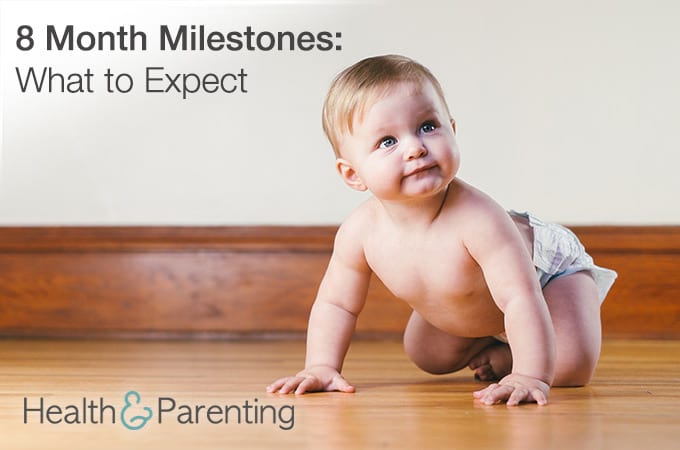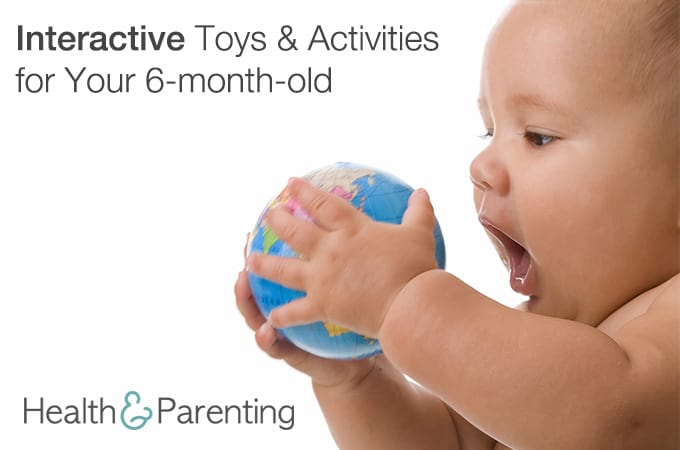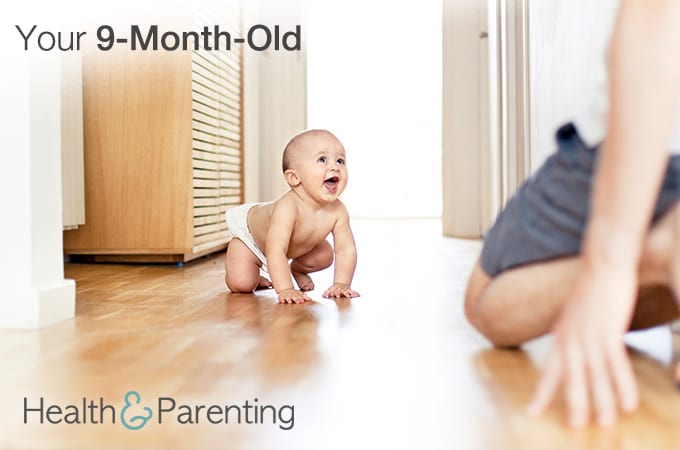At eight months old, your baby is starting to make some amazingly cute noises throughout the day. She’s busy discovering her vocal chords and experimenting with the sounds she can make. She’s also busy working out to build her strength ready for the mobility she’s working so hard to achieve. Your baby is busy developing a personality and is probably quite fun to be around these days. Here are some of the 8 month milestones your baby might reach this month:
Splat
Your baby has been working on her hand control and dexterity this month and, unfortunately for you, she’s likely to discover the endless fun of dropping things. You should expect to spend most of this month bent double picking things up from the floor. The good news is, your baby is not only learning to improve her hand control, she’s also figuring out a little bit more about object permanence. If she starts playing this game with her dinner, try not to get too frustrated. It’ll be a short phase and she’ll soon figure out that dropped food doesn’t make it’s way back to her plate. To protect your floors, put down some wipe clean mats before each meal.
On the move
Your eight month old is probably desperate to be on the move. She’s been working hard at developing her strength and is busy plotting her escape routes. Your baby may already be crawling but if she’s not, don’t worry. Your baby will master these skills in her own time. At around this time, your baby may start using her upper body strength to pull herself up whilst holding onto bits of furniture. She’s probably not ready for cruising just yet, but she’s thinking about it.
Coordinated attack
Your baby’s hand-eye coordination is constantly improving and you can help her to develop this skill further by offering her finger foods to eat at mealtimes. Small foods like peas or beans may be a challenge at first, but your baby will soon master the pincer grip necessary for eating smaller foods.
Hold me
Your baby may develop separation anxiety at around this time. Thanks to her newfound understanding of object permanence, she now knows you exist even when you’re not in front of her. You may notice she’s clingier than usual and cries when you leave the room. It can be frustrating, but it won’t last forever (even if it feels like it will). Remember, this too shall pass.
Eight months is a pretty cute age. What’s your favorite thing about eight month olds?
Written by Fiona (@Fiona_Peacock), mother, writer and lover of all things baby related.
This information is not intended to replace the advice of a trained medical doctor. Health & Parenting Ltd disclaims any liability for the decisions you make based on this information, which is provided to you on a general information basis only and not as a substitute for personalized medical advice. All contents copyright © Health & Parenting Ltd 2016. All rights reserved.












